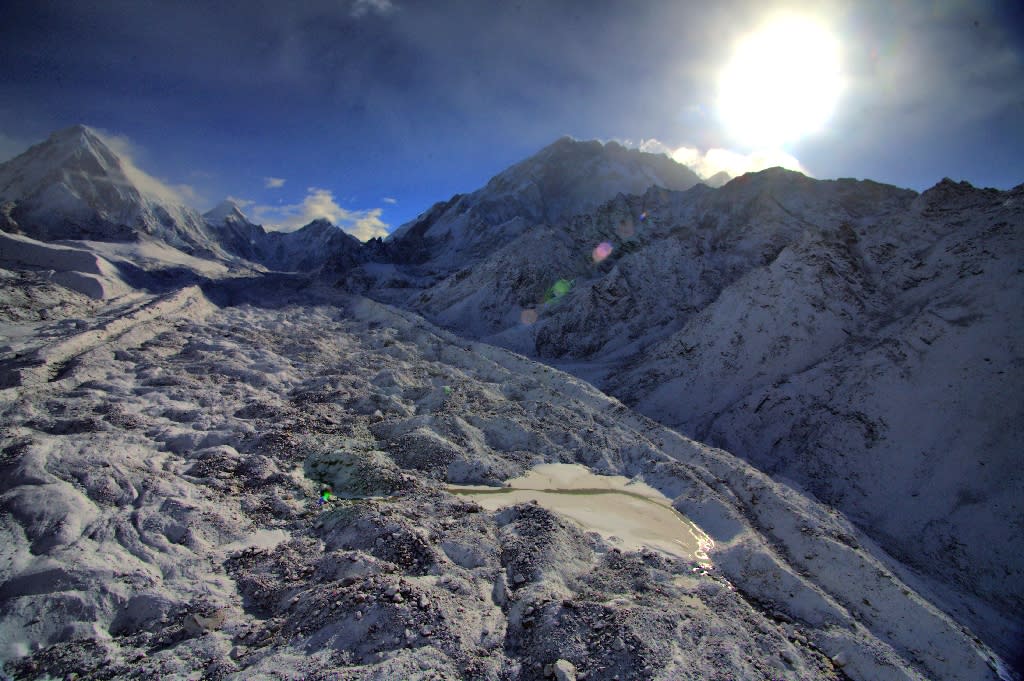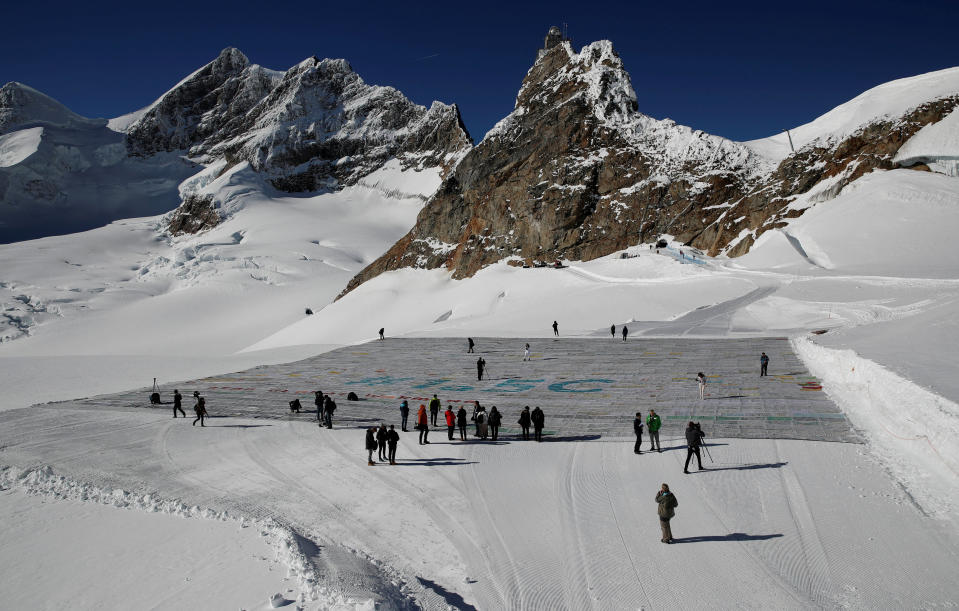Glaciers ‘to vanish from half of world’s top beauty spots’ due to global warming

Some of the world’s most iconic and beautiful locations will be transformed by global warming, with glaciers vanishing from sites such as Everest’s Khumbu Icefall in decades.
Glaciers will vanish from half of U.N.-designated World Heritage sites this century unless greenhouse gas emissions are curbed, research published in Earth’s Future suggests.
Sites in the Swiss Alps such as the Grosser Aletschgletscher will see ice vanish, the researchers warned.

So will Greenland’s Jakobshavn Isbrae said researchers from the International Union for Conservation of Nature (IUCN), which collaborated with the University of Fribourg on the study.
Read more from Yahoo News UK:
Right wing comedian hits back at Guardian diversity claims
Labour rejects calls to commit to second referendum
Ukip MEP defends leader’s Islam ‘death cult’ comments
Peter Shadie, the director of the IUCN World Heritage Programme, said, ‘Losing these iconic glaciers would be a tragedy and have major consequences for the availability of water resources, sea level rise and weather patterns.’
Researchers plotted glaciers at World Heritage locations -identifying a total of some 19,000 over 46 sites – and used data modeling to predict ice loss based on how much carbon dioxide and other greenhouse gases the world emits between now and 2100.
Nearly half the World Heritage sites – 21 out of a total of 46 that have glaciers – will lose all their ice by 2100 under a high emissions scenario, they found.
Even under a low-emissions model, eight of the sites will be ice free by the start of the next century, the report said.


